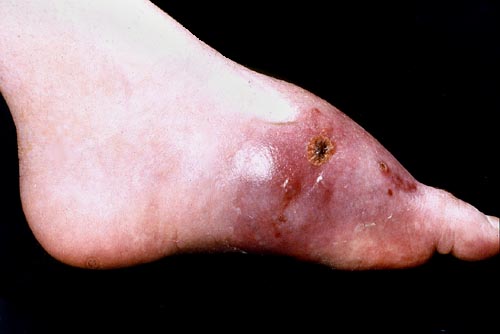Aspergillosis Causes, Symptoms, Diagnosis and Treatment

What Is Aspergillosis?
Aspergillosis is the name given to a wide variety of diseases caused by infection by fungi of the genus Aspergillus.
Most commonly, aspergillosis occurs in the form of chronic pulmonary aspergillosis (CPA), aspergilloma or allergic bronchopulmonary aspergillosis (ABPA).
Some forms are intertwined; for example ABPA and simple aspergilloma can progress to CPA.
In some people, the spores trigger an allergic reaction. Other people develop mild to serious lung infections. The most serious form of aspergillosis — invasive aspergillosis — occurs when the infection spreads to blood vessels and beyond.
Depending on the type of aspergillosis, treatment may involve observation, antifungal medications or, in rare cases, surgery.
Causes Of Aspergillosis:
Aspergillosis is caused by a fungus (Aspergillus). The fungus is commonly found growing on dead leaves, stored grain, compost piles, or in other decaying vegetation.
It can also be found on marijuana leaves.
There are several forms of aspergillosis:
- Pulmonary aspergillosis is an allergic bronchopulmonary type that is an allergic reaction to the fungus. This infection usually develops in people who already have lung problems such as asthma or cystic fibrosis.
- Aspergilloma is a growth (fungus ball) that develops in an area of past lung disease or lung scarring such as tuberculosis or lung abscess.
- Pulmonary aspergillosis is an invasive type that is a serious infection with pneumonia that can spread to other parts of the body. This infection almost always occurs in people with a weakened immune system due to cancer, AIDS, leukemia, an organ transplant, chemotherapy, or other conditions or medications that lower the number or function of normal white blood cells or weaken the immune system.
Risk Factors Of Aspergillosis:
- Weakened immune system.
taking immune-suppressing drugs after undergoing transplant surgery
Having certain cancers of the blood are at highest risk of invasive aspergillosis. - Low white blood cell level.
chemotherapy,
an organ transplant
leukemia
chronic granulomatous disease - Lung cavities.
- Asthma or cystic fibrosis.
- Long-term corticosteroid therapy.
Symptoms Of Aspergillosis:
Symptoms vary depending on the type of infection.
Symptoms of allergic bronchopulmonary aspergillosis may include:
- Cough
- Coughing up blood or brownish mucus plugs
- Fever
- General ill feeling (malaise)
- Wheezing
- Weight loss
Other symptoms depend on the part of the body affected, and may include:
- Bone pain
- Chest pain
- Chills
- Decreased urine output
- Headaches
- Increased phlegm production, which may be bloody
- Shortness of breath
- Skin sores (lesions)
- Vision problems
Diagnosis Of Aspergillosis:
Tests to diagnose Aspergillus infection include:
- Aspergillus antibody test
- Chest x-ray
- Complete blood count
- CT scan
- Galactomannan (a molecule from the fungus that is sometimes found in the blood)
- Immunoglobulin E ( blood level
- Lung function tests
- Sputum stain and culture for Aspergillus
- Tissue biopsy
Treatment Of Aspergillosis:
Treatments depend on the type of disease.
Possible treatments include:
- Observation.
- Oral corticosteroids.
- Antifungal medications.
- Surgery.
Related Articles :
Pitted Acne Scars Symptoms, Causes, Diagnosis and Treatment
Acne Rosacea Symptoms, Causes, Diagnosis and Treatment
Acne Vulgaris Symptoms, Causes, Diagnosis and Treatment
Erythema Nodosum Symptoms, Causes, Diagnosis and Treatment
Vitiligo Symptoms, Causes, Diagnosis and Treatment
Psoriasis Symptoms, Causes, Diagnosis and Treatment
Pemphigus Symptoms, Causes, Diagnosis and Treatment
Gangrene Symptoms, Causes, Diagnosis and Treatment
Chickenpox Symptoms, Causes, Diagnosis and Treatment
By : Natural Health News




